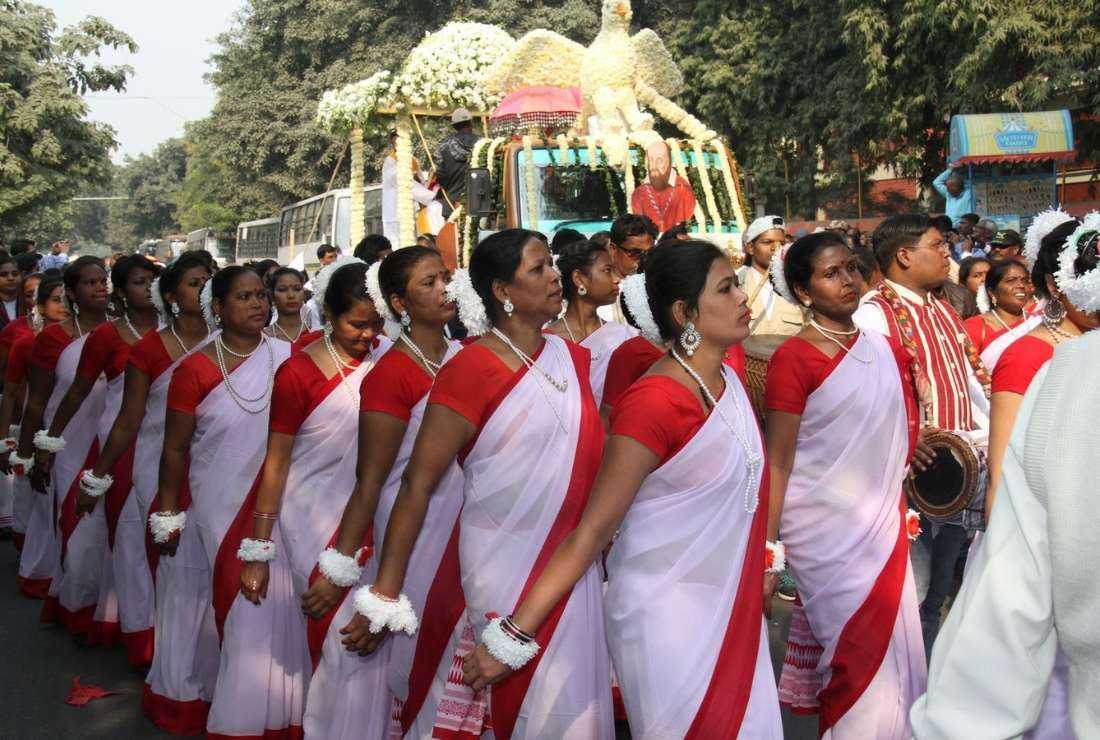
Tribal Catholics taking part in the annual Christ the King festival in New Delhi on Nov 26, 2017 (Photo: Bijay Kumar Minj / UCA News)
Iswar Kujur appeared apologetic when asked if he, and other tribal Christians like him, felt discriminated against within the Church in India.
A prominent member of the Catholic association in his parish at an East Delhi church, Kujur was at a loss for words and barely managed to mumble that “it [discrimination] is there, knowingly or unknowingly … people seem to be aware of it … [but] can’t help it.”
Many tribal Christians in the national capital, with whom UCA News spoke in the past month, admitted in private, on the strict condition of anonymity, that discrimination against them does exist in several forms within Delhi archdiocese.
It is reflective of the discrimination tribal people face in churches dominated by non-tribal people across India, tribal leaders say.The extent of their victimhood was evident as some even blamed themselves, saying they weren’t “educated or qualified enough” to be considered active, contributing members of the Church or its various organizations.
“The majority of our tribal parishioners are less educated and lack leadership qualities. They are not capable of accomplishing the parish work assigned to them. Hence they are never given any major responsibilities but some lesser tasks depending on their capabilities,” Kujur said.
He added that many among them have this “unspoken, sad feeling at being left behind,” but at the same time “we also acknowledge that it is good that more qualified persons are in charge.”
“The priest and laity know it, but for the betterment of the church and the community they prefer to keep quiet,” he explained.

Tribals celebrate the annual harvest festival called Karam in New Delhi on Sept 11, 2022. (Photo: Bijay Kumar Minj / UCA News)
Humiliated as domestic aids
Shanti Beck, vice president of the Chotanagpur Working Women’s Forum in New Delhi, which fights for the cause of migrant domestic workers from states like Jharkhand and Orissa in the eastern tribal heartland of India, said “it’s humiliating the way we are treated [in the Church] because we are domestic workers.”
But she was quick to add that they are thankful to the Church for several projects to educate and uplift the domestic workers in the social and economic sectors.
“Most of our girls are less educated or illiterate so we don’t expect or demand any role in our church. However, we expect that the church gives us small responsibilities like cleaning, gardening, and even decorating,” Beck said.
“We can also sing and dance well,” Beck said indicating that in parishes’ cultural programs they are not included with other women.
While most tribal women work as domestic workers or casual laborers, the men are invariably employed as peons, drivers and for other menial tasks in Church-run institutions.
And as one of them said: “Intentionally or unintentionally, we end up occupying the corner or back benches of the church.”
There are hardly any tribal Catholics in any decision-making bodies at the parish or archdiocese level. They are rarely asked for their views, opinions, or grievances if any.
But the rules and regulations of the Church are strictly imposed on them, as they are from the socially, educationally and economically weaker sections, a tribal leader said.It’s a common sight in most parish churches that the front rows are reserved for the so-called elite, educated and rich people, coming mostly from non-tribal communities who maintain a close connection with the priestly class.
At annual events like Christ the King Day, Christmas and Easter festivals, tribal people serve in the background as volunteers, sweeping and cleaning the venues, while the others hog the limelight on stage.
Some of them complained that the parish priests prefer to visit the homes of the influential for prayers, pastoral care, anointing the sick, and even serving Holy Communion to the bedridden.

Tribal catholic youths take part in a fashion show during World Indigenous Day in New Delhi on Aug. 17, 2018. (Photo: Bijay Kumar Minj / UCA News)
Elitism in the Catholic Church
Theologian Father Francis Gonsalves, as quoted in an international journal, says: “Unfortunately in India, Christianity has been closely connected with colonialization and is, on the one hand, still considered a ‘foreign religion’ of the elites, while, on the other, a majority of Indian Christians belong to the unprivileged and dispossessed groups who are struggling to secure their basic rights to food, land and just living. These communities are also often marginalized in the Church.”
Among the estimated, 27 million Christians in India, the Adivasi or tribal Catholics are most vulnerable to not only social discrimination but also religious persecution because of the combined disadvantages of race, language and geography.
Even before the Christian faith arrived in India, tribal communities lived in isolation from mainstream society, often concentrated in remote, forested hills and valleys, following their own animist religious practices and speaking dialects that do not identify with the majority of Indians.
But when these simple folks began adopting Christianity over a century ago, it caused great alarm among Hindu nationalists, who feared they were being won over to a ‘foreign’ faith.
They launched strident counter-proselytization programs of their own, which culminated in a wave of violence against Christians in 1998-99 that made international headlines as churches were burnt down in the predominantly tribal Dangs district of Gujarat state in western India, and Christians were beaten up and even killed in the eastern tribal states of Odisha (now Orissa) and Jharkhand, besides Chhattisgarh in central India.
Many Christians from this tribal heartland are being forced to ‘reconvert’ to what is being defined as ‘Hinduism’ through staged shudhhi or purifying ceremonies.
Tribal Catholics among other denominations have been at the receiving end of the systematic Christian persecution carried out across the country over the past few decades.
When it’s not violence, one form of discrimination tribal Christians face daily is social exclusion — from not being invited to social get-togethers to being coerced to leave their villages because of the ‘alien’ faith they’ve chosen to adopt.

Tribal women dressed in traditional attire wait to welcome a guest in Jharkhand in 2018 (Photo: Bijay Kumar Minj / UCA News)
Southern Catholics dominate
Loss of livelihood, displacement, and deprivation of basic facilities are among the human rights violations that tribal Christians, who refuse to follow the mores of village society, often face due to their faith.
Families that are boycotted or ostracized experience deep trauma and often leave their homes and villages for good and migrate to the cities like New Delhi looking to survive.
And yet, a majority of them have remained true to their faith in Christ.
In fact, a growing trend in India shows tribal people embracing Christianity over other religions, as revealed by government statistics.
The number of tribal Christians has increased from 6.3 million in 2001 to 10.03 million in 2011, recording a 63 percent growth, according to the last available national census figures.
In the tribal stronghold states like Jharkhand and Chhattisgarh and in some parts of Madhya Pradesh and Bihar tribal Catholics dominate in certain dioceses, where they do not face tribal-non-tribal discrimination.
However, as they say, "a tribal by birth is a tribal anywhere in India."
Most Catholic priests in non-tribal areas come from southern and western states like Kerala, Tamil Nadu, Karnataka, Goa and Vasai in Maharashtra where Christianity has had deep roots for centuries.
In many Church-run schools and centers of higher learning, tribal children are the first or second generation in their families to learn to read and write.
Nabore Ekka, president of the Delhi region of the Bharatiya Adivasi Sangamam (Indian Indigenous People's Forum) says the continuing discrimination and divisions within the Church “is a worrisome thing” for tribal Christians.
Church leaders like him, involved in bettering the lives of tribal Christians, believe that as the younger lot climbs up the education ladder, there will likely be more reflection and action on their integration into the Church.

Tribal Christian women perform a traditional dance during a hockey match in New Delhi on Aug 8, 2017. (Photo: Bijay Kumar Minj / UCA News)
Groupism and regionalism
The diverse community of Indian Christians remains as conservative as the caste-ridden mainstream society, especially when it comes to issues like interreligious marriages, which could ensure the social integration of different communities.
It is rare for non-tribal Catholics to marry a tribal one as tribal people are considered inferior by non-tribal Catholics, tribal leaders agree.
In the Federation of Catholic Associations of the Archdiocese of Delhi, the highest church association body, only a few tribal members hold any positions of consequence.
There are no tribal priests or nuns, laymen or women in the major decision-making bodies of Delhi archdiocese. Hardly any tribal people make it to Catholic Sabha (Forum) president or vice president at the Cathedral parish level.
“Church leaders know there is discrimination and should be addressing these issues and creating opportunities for us,” Ekka said.
Birdhi Lakra, founder member of the Welfare Association of Tribals of Chotanagpur (WATCH) pointed a finger at the monopoly of priests and nuns from southern states since the early fifties. “They like to promote people from their region in the Church,” he said.
Meanwhile, tribal Christians were still engaged in finding a foothold and eking a living in the big cities, without even a proper residential address, Lakra added.
“Groupism based on regional and linguistic identities was, even if unintentionally, promoted by priests, nuns, and religious people. But things have started to change in the past few decades,” he observed.
.jpg)
Domestic workers protest in Jantar Mantar, New Delhi on July 21 against the rape of a 27-year-old fellow worker by a 60-year-old retired Merchant Navy officer in Vasant Kunj on June 26, 2017. (Photo: Bijay Kumar Minj / UCA News)
No data on migrant tribal Christians
There is a sizable population of tribal Christians in most parishes of Delhi today. In some places, they account for nearly 50-70 percent of parish members.
The archdiocese has not been known to have conducted demographic surveys for decades but claims to have had around 100,000 Catholics since around 2000, with people from the South projecting themselves as the majority.
“But in reality, tribal people now form more than half of the population. We would know the numbers only if a survey is conducted,” said a tribal leader.
The total population of the archdiocesan area has some 30 million people, as it covers districts of Gurgaon, Rohtak, Mahendragarh, Sonepat, Faridabad, Nuh, Jhajjar and Rewari in Haryana state. The majority of people in the area are Hindus.
Lakra said the religious vocation had started to dry up in the South, and more and more tribal people were enrolling to become priests and nuns in Delhi archdiocese, and in its suffragan dioceses of Jammu-Srinagar, Jalandhar, Simla and Chandigarh.
The Christian presence in Delhi and its surrounding areas can be traced back to 1626.
Mass tribal migrations began here in the eighties and nineties and many are now two generations old in the Delhi region. The first generation struggled to settle down but the present one of tribal Catholics has started making its own space in the life and culture of the city.
Church official denies discrimination
Father Savarimuthu Sankar, the spokesman of Delhi archdiocese, denied any form of discrimination in the community.
“We don’t practice and promote discrimination in the Catholic Church. All are equally treated in Delhi archdiocese,” he said.
“If it [discrimination of tribal people] were true, some of our tribal priests would not have gone to study abroad. One of the tribal priests is doing a doctorate abroad, and another one also doing a doctorate in Mangalore [in southern Karnataka state],” the priest said.
Positions and responsibilities “depend on one's capacities. We have to see if that person is competent, and needs study, training as well as a special skill. All can become a school principal, or superior or even a bishop.”
He said all appointments are based “solely on skill and capacities” and “there are no issues of discrimination on the basis of caste, ethnicity, or language in Delhi archdiocese.”

Domestic workers shout slogans during a demonstration near the Indian parliament in New Delhi on Aug 2, 2018 demanding their rights. (Photo: Bijay Kumar Minj / UCA News)
Change to shed the tribal identity
Things are slowly changing for tribal people in Delhi with better quality of education and economic opportunities coming their way, tribal leaders said. With the change, the average young tribal Christian in Delhi is gradually losing or denying their indigenous identity, often due to the stigma attached.
“They are getting alienated from tribal culture and values as the national capital provides a lack of opportunity to learn tribal languages, music, dance and other art forms,” the elders said.
Anand Felix Toppo, a retired official of All India Radio, the country’s premier public service broadcaster, was among the earliest migrants and one of the few educated tribal Catholics to arrive in the national capital in the late 1950s.
“It was easy to get a government job at that time because of the quota system,” he said referring to India’s constitution-approved affirmative action program for socially disadvantaged sections including tribal people.
Reservations form a system of affirmative action in India that provides representation in education, employment and politics for historically disadvantaged groups such as tribal people, Dalits and socially backward castes.
Currently, the Delhi region has some 500,000 people in tribal categories, officially named as the Scheduled Tribes (STs), but they cannot avail of the educational and job benefits since the national capital, now declared an independent province with an elected state government historically did not have tribes, and hence no migrant can be registered as an ST.
As Toppo testifies, the earlier lot of tribal people was lucky as many landed government jobs even if as office boys or clerks. Only a few like him managed to become officers.
It was the Catholic priests and nuns who started bringing in young tribal girls as domestic help in Church-run institutions, which soon became a migratory trend in Delhi. It was perhaps because of this that the tribal men and women gained an inferior identity in the city's Church circles.
“The Church as well as tribal people could not help the situation. It was unavoidable,” Toppo said.
According to Father Gonsalves, the Church has a dual responsibility of “divesting itself of its foreign trappings and elitist agenda,” and committing itself to address ‘political’ issues like the “land alienation and mass migration of Adivasi Christians.”
Ensuring an end to discrimination against them within the Church could be the first step in the right direction, tribal Catholics say.

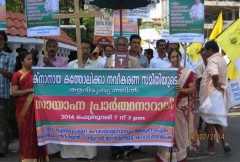
A ‘pure blood’ claim that discriminates among Indian Catholics
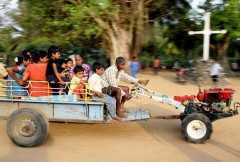
Minority Tamil Catholics feel shortchanged by Sri Lankan Church
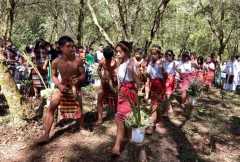
Indigenous people feel abandoned by Philippine Church
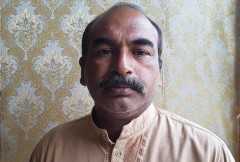
Cast out for doing the dirty work in Pakistan
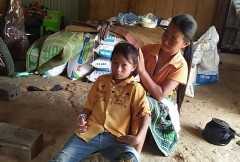
Ethnic Catholics suffer social inequity in Vietnam
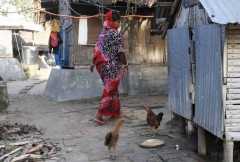
Caste culture's rooted in amongst Bangladeshi Catholics too